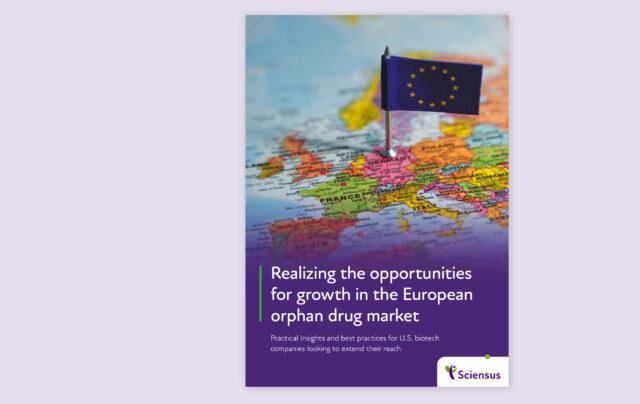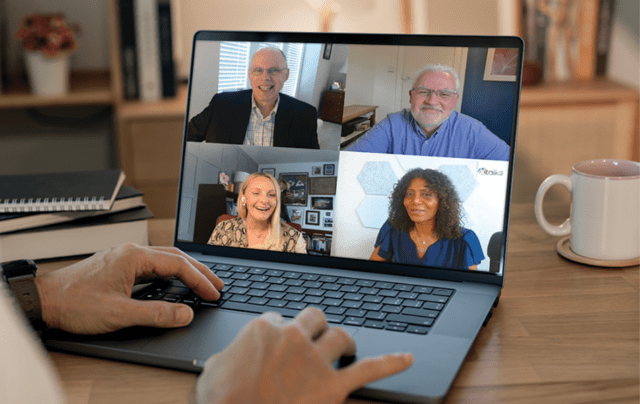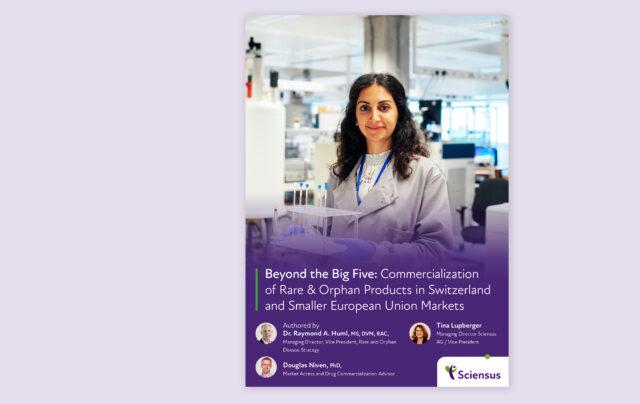
Driving reimbursement success in Europe with real-world data
Andrew Cummins, Vice President Business Development, and Mathieu Loiseau, Director of Rare Clinical Services, spoke at the recent World Orphan Drug Congress about real-world data (RWD) and its ability to drive reimbursement success in Europe.
During the session, they shared two case studies highlighting the challenges faced by international biotechs and strategies they’ve successfully used to support client submissions and enhance payer acceptance. They also focused on the growing role of RWD in Europe in supplementing traditional clinical trial data, especially for rare diseases.
Key takeaways
RWD is increasingly being accepted by European regulatory and reimbursement bodies, especially for rare disease therapies, where traditional clinical trials are difficult to conduct at scale. In the US, 65% of new products are using RWD to prove safety and efficacy, and Andrew explained that we’re seeing very similar trends in Europe.
While randomised controlled trials (RCTs) will always be the gold standard, RWD offers valuable insight into treatment efficacy, disease burden and patient-reported outcomes in real-life settings. This data can help to bridge the gap caused by small or unrepresentative trial populations.
This can be particularly important for companies negotiating reimbursement for high-cost therapies, where payers might have questions around the necessity or value of the treatment. In these cases, RWD, including on patient experience, healthcare resource utilisation and disease progression, can help us generate additional context to guide reimbursement decisions in the right direction.

RWD is becoming critical to reimbursement success in Europe
RWD is increasingly being accepted by European regulatory and reimbursement bodies, especially for rare disease therapies, where traditional clinical trials are difficult to conduct at scale. In the US, 65% of new products are using RWD to prove safety and efficacy, and Andrew explained that we’re seeing very similar trends in Europe.
While randomised controlled trials (RCTs) will always be the gold standard, RWD offers valuable insight into treatment efficacy, disease burden and patient-reported outcomes in real-life settings. This data can help to bridge the gap caused by small or unrepresentative trial populations.
This can be particularly important for companies negotiating reimbursement for high-cost therapies, where payers might have questions around the necessity or value of the treatment. In these cases, RWD, including on patient experience, healthcare resource utilisation and disease progression, can help us generate additional context to guide reimbursement decisions in the right direction.

Engage early with key stakeholders to shape impactful evidence
Another key theme of the discussion was the growing role of RWD in both original and supplemental filings, particularly in the case of rare diseases, where traditional trial models can fall short. Andrew and Mathieu emphasised that the successful integration of RWD into regulatory submissions is highly dependent on early and ongoing engagement with competent authorities. This can help to ensure that study design, endpoints and data quality meet the ever-evolving expectations of payers and regulators.
Andrew said, “When conducting real-world data studies, always remember to start early, collaborate with organisations and view these studies as opportunities to bring more value to patients.”
The importance of engaging local stakeholders early, including patient groups, healthcare professionals and regulators, is also essential to successfully navigating country-specific requirements and ensuring that the evidence generated applies to real-world healthcare settings.

Validating RWD for regulatory and clinical use
The session also covered the challenge of validating RWD and ensuring its quality for regulatory and clinical use. In response to questions from the audience, Andrew and Mathieu discussed the importance of clear processes that combine advanced digital tools with strong clinical oversight. Trained professionals, particularly nurses, also have a crucial role to play in gathering patient-reported outcomes, reinforcing the effectiveness of a hybrid approach that combines digital innovation with a human touch.
Ultimately, to ensure RWD is reliable and generates meaningful insight, we need to apply a clear and consistent approach, conduct continuous quality checks and make use of both digital and in-person engagement.
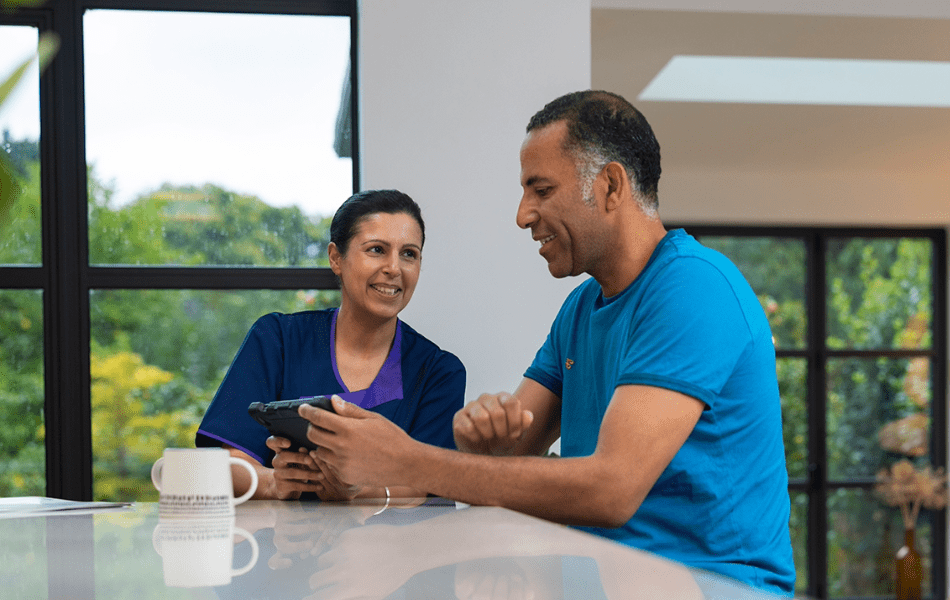
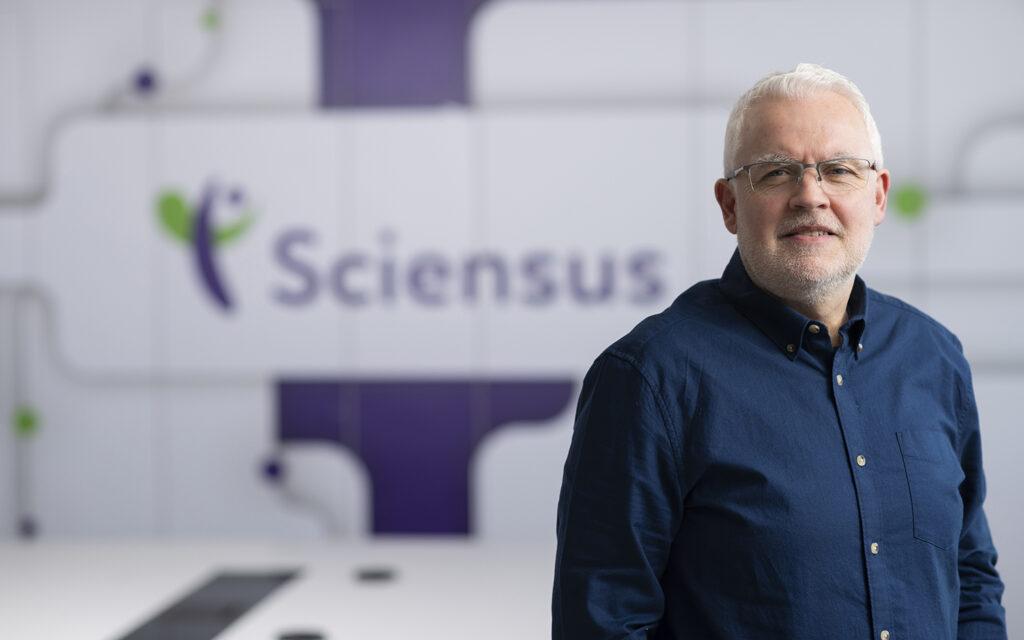
When conducting real-world data studies, always remember to start early, collaborate with organisations and view these studies as opportunities to bring more value to patients.
Andrew Cummins VP of Business Development
Conclusion
In an increasingly outcomes-driven and cost-conscious environment, real-world evidence (RWE) is fast becoming a crucial tool in the development of successful European reimbursement strategies. The session highlighted how being able to generate high-quality, locally relevant RWE relies on early engagement with stakeholders and studies designed with national differences in mind. Whether through localised surveys, patient support programmes or enhanced PASS studies, companies have an opportunity to build more credible, compelling evidence packages that resonate with payers.
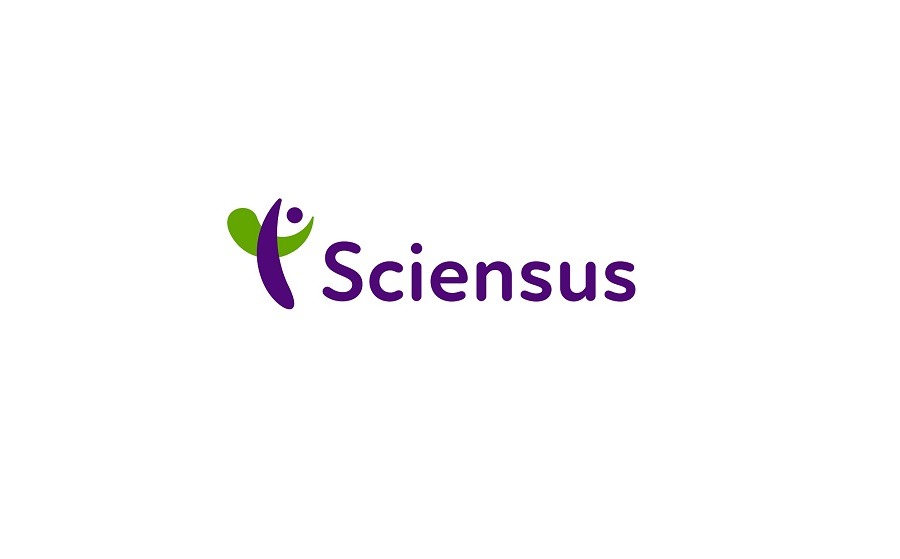
About Sciensus
Sciensus is a proven life sciences solutions partner with more than 30 years’ experience in navigating and unlocking the complex European healthcare ecosystem to maximise patient reach. We help accelerate the development journey, bringing medicines into the market and directly to patients to improve health outcomes. Through cutting-edge patient engagement programmes, offering an exclusive combination of skilled in-person care and digital support, we help patients make the most of their treatment and generate real-world evidence that can be used to improve treatment pathways.

